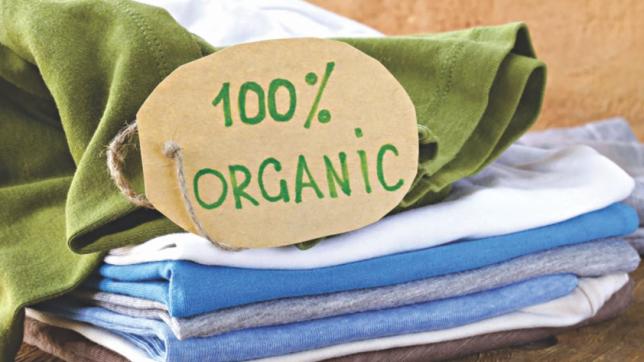Organic push earns global praise

Bangladesh is fast forging its way to be a hub of organic textile manufacturing amid a rise in demand from international apparel retailers.
In the country, the number of globally recognised textile factories, which use organic raw materials, rose 29 percent last year, with the growth rate being highest globally.
In 2018, organic certification grew 25 percent in North America, 23 percent in Pakistan and 23 percent in South Korea, said the Global Organic Textile Standard (GOTS), an international benchmark.
“Bangladesh continued its second position and registered a growth rate of 29 percent in terms of GOTS certified facilities,” Sumit Gupta, GOTS representative for India and Bangladesh, said in a statement.
Globally, the number of facilities certified by the GOTS rose 14.6 percent to 5,760 in the year. GOTS certification covers the processing of certified organic fibres along the entire supply chain from field to finished product. Certified factories are located in 64 countries.
In terms of total numbers, the highest increase is reported from India, which added more than 315 factories, followed by Bangladesh at 155 and Europe 98.
Bangladesh has the second most GOTS-certified factories worldwide with 689 facilities, just behind India with 1973 factories.
The other top countries in terms of total number of certified units are: Turkey (519), Germany (500), Italy (340), China (301), Pakistan (238), Portugal (215), the US (127), and South Korea (85).
In the statement, GOTS Managing Director Claudia Kersten said: “The increasing number of certified facilities aligns with the common desire to solve sustainability related problems.”
“It confirms that GOTS is seen as part of the solution. Company leaders use GOTS as risk management tool and as market opportunity. Consumers value the verifiable certification from field to finished product.”
David Hasanat, chairman and chief executive officer of Viyellatex Group, a leading apparel exporter, said export prospects of organic products from Bangladesh are good as the demand for such products is growing worldwide.
Of the total exports of Viyellatex, 5 to 7 percent are organic products.
“The use of organic products in Bangladesh's textile mills is growing gradually,” said Monsoor Ahmed, secretary of the Bangladesh Textile Mills Association (BTMA), the spinners and weavers' platform.
Some textile millers are expanding capacity to produce organic products, he said.
Organic products account for 5 to 7 percent of the shipment of almost all the big and compliant garment companies in Bangladesh, said Siddiqur Rahman, president of the Bangladesh Garment Manufacturers and Exporters Association.
Rahman's exports include at least 7 percent organic products. Bangladesh imports nearly 8 million bales of cotton every year, mainly from India, the US and from some African countries, Ahmed said.
Of the imports, nearly 6 percent is organic cotton that comes from India and the US, he said.
“The price of organic cotton is higher than other fibres as it needs special care during cultivation,” Ahmed said, adding that no pesticide or chemical is used during farming.
Hasanat said the number of customers of organic products is low, so factory owners do not produce these items on a massive scale like they do in case of traditional garment products. The GOTS was developed by the Organic Trade Association of the US, the Japan Organic Cotton Association, the International Association Natural Textile Industry of Germany, and the Soil Association of the UK.
It includes the entire postharvest processing of apparel and home textiles made with certified organic fibre and has both environmental and social criteria.
Key provisions include a ban on the use of genetically modified organisms, highly hazardous chemicals, and child labour, while requiring strong social compliance management systems and strict waste water treatment practices.
